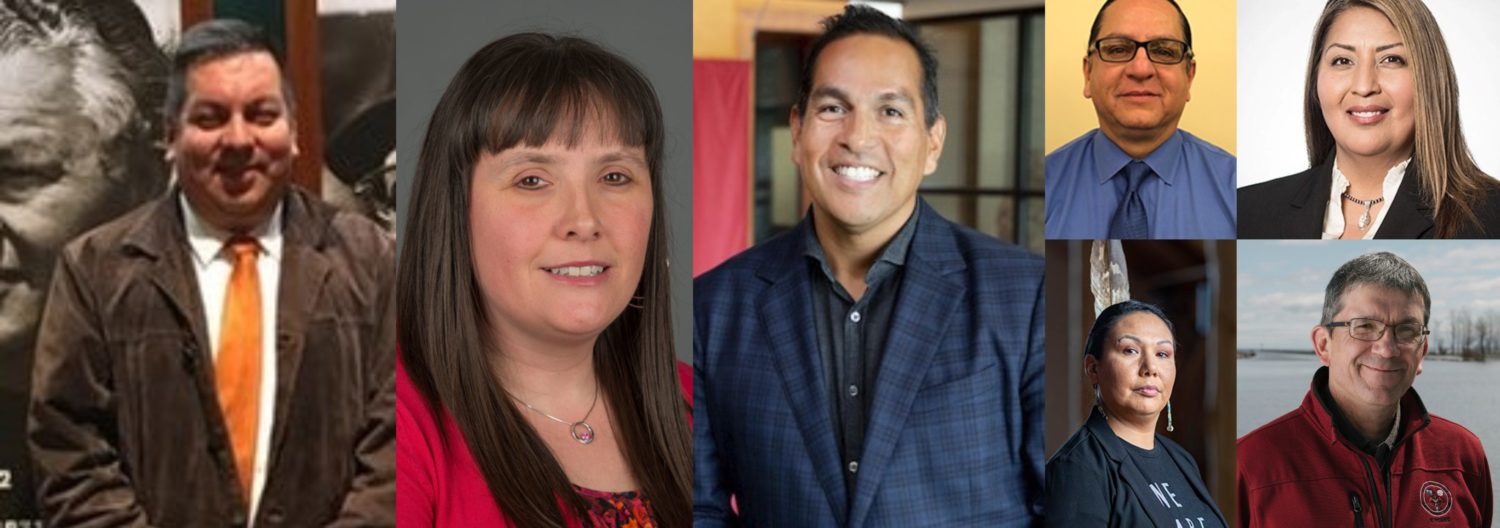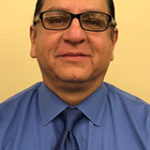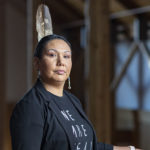
This is the fourth of a five-part series. Part 3 is available here.
 Douglas Cox was re-elected to serve as Tribal Chairperson for the Menominee Indian Tribe of Wisconsin and will serve in that position for the next year. At the Chairman’s Office, he is the face of the Tribal Legislature and serves as the liaison between the Menominee People and Tribal Government and is responsible for maintaining the Tribe’s relationships with other Tribal Governments, as well as local, state, and federal governments. Cox has worked with the Tribe since 1992.
Douglas Cox was re-elected to serve as Tribal Chairperson for the Menominee Indian Tribe of Wisconsin and will serve in that position for the next year. At the Chairman’s Office, he is the face of the Tribal Legislature and serves as the liaison between the Menominee People and Tribal Government and is responsible for maintaining the Tribe’s relationships with other Tribal Governments, as well as local, state, and federal governments. Cox has worked with the Tribe since 1992.
 Samantha Skenandore, a member of the Ho-Chunk Nation, is an attorney at Quarles & Brady in Madison. Skenandore focuses her practice on federal Indian law and tribal law, and advises her clients in matters such as tribal governance, real estate, labor issues and litigation. She also advises clients on strategies to start businesses, build capacities and prosper. Skenandore received a bachelor’s degree in Behavioral Sciences & Law as well as a certificate in American Indian Studies from the University of Wisconsin – Madison. She then went on to receive her J.D. from the University of Denver Sturm College of Law.
Samantha Skenandore, a member of the Ho-Chunk Nation, is an attorney at Quarles & Brady in Madison. Skenandore focuses her practice on federal Indian law and tribal law, and advises her clients in matters such as tribal governance, real estate, labor issues and litigation. She also advises clients on strategies to start businesses, build capacities and prosper. Skenandore received a bachelor’s degree in Behavioral Sciences & Law as well as a certificate in American Indian Studies from the University of Wisconsin – Madison. She then went on to receive her J.D. from the University of Denver Sturm College of Law.
 Steve Ninham, the general manager at Radisson Hotel & Conference Center in Green Bay, has been working at the Radisson for more than seven years. The Radisson is owned by the Oneida Nation. Ninham, a member of the Oneida Nation, is responsible for managing the hotel and brings more than $20 million in hotel revenue to the Nation. Under Ninham’s management, Radisson Hotel’s sales team won Sales Team of the Year at the Aimbridge Hospitality Awards in 2016. Ninham himself was a finalist for the General Manager of the Year, which he had won twice previously.
Steve Ninham, the general manager at Radisson Hotel & Conference Center in Green Bay, has been working at the Radisson for more than seven years. The Radisson is owned by the Oneida Nation. Ninham, a member of the Oneida Nation, is responsible for managing the hotel and brings more than $20 million in hotel revenue to the Nation. Under Ninham’s management, Radisson Hotel’s sales team won Sales Team of the Year at the Aimbridge Hospitality Awards in 2016. Ninham himself was a finalist for the General Manager of the Year, which he had won twice previously.
 Dr. Heather Ann Moody, a member of the Ho-Chunk Nation, has been an assistant professor of American Indian Studies at the University of Eau-Claire since 2014. In 2019, she earned the UW-System Outstanding Women of Color in Education Award. Moody’s research is centered on American Indian requirements in higher education K-12 and American Indian Food Sovereignty. She currently chairs a statewide body on the American Indian Program Curriculum, which promotes the enforcement of Act 31, Wisconsin’s statute on American Indian Studies. Moody received her bachelor’s degree from the UW-Eau-Claire. She later earned an M.A. in American Indian Studies at the University of Arizona and a Doctorate in Education from the University of Minnesota Duluth.
Dr. Heather Ann Moody, a member of the Ho-Chunk Nation, has been an assistant professor of American Indian Studies at the University of Eau-Claire since 2014. In 2019, she earned the UW-System Outstanding Women of Color in Education Award. Moody’s research is centered on American Indian requirements in higher education K-12 and American Indian Food Sovereignty. She currently chairs a statewide body on the American Indian Program Curriculum, which promotes the enforcement of Act 31, Wisconsin’s statute on American Indian Studies. Moody received her bachelor’s degree from the UW-Eau-Claire. She later earned an M.A. in American Indian Studies at the University of Arizona and a Doctorate in Education from the University of Minnesota Duluth.
 Jeff Bowman, a member of the Stockbridge-Munsee Community, is President and CEO of the Oneida Nation-owned Bay Bank in Green Bay. Bowman is a leader in facilitating economic development and supporting small and Native American-owned businesses. He has over 30 years of experience in the banking industry and has sat on a number of high ranking boards. Currently, Bowman is the President of the First American Capital Corporation Board of Directors. Bowman has also served as a board member of the Wisconsin Business Development Finance Corporation, the American Indian Chamber of Commerce of Wisconsin and the Gerald L. Ignace Indian Health Center, Inc., to name a few.
Jeff Bowman, a member of the Stockbridge-Munsee Community, is President and CEO of the Oneida Nation-owned Bay Bank in Green Bay. Bowman is a leader in facilitating economic development and supporting small and Native American-owned businesses. He has over 30 years of experience in the banking industry and has sat on a number of high ranking boards. Currently, Bowman is the President of the First American Capital Corporation Board of Directors. Bowman has also served as a board member of the Wisconsin Business Development Finance Corporation, the American Indian Chamber of Commerce of Wisconsin and the Gerald L. Ignace Indian Health Center, Inc., to name a few.
 Aaron Bird Bear, a citizen of the Mandan, Hidatsa and Diné nations, is the first tribal relations director at the University of Wisconsin–Madison. His role is to foster relationships between the 12 First Nations of Wisconsin and the university. Before accepting this position, Bird Bear has been a strong First Nation activist on the campus since 2000. In 2003 Bird Bear developed the popular First Nations Cultural Landscape tour at UW-Madison, where thousands of visitors learn about 11 architectural earthwork mound sites and at least 25 human habitation sites dating back 12,000 years. He currently co-leads a group that creates heritage markers on and around Bascom Hill; the “Our Shared Future” markers honor and recognizes the land as the ancestral home of the Ho-Chunk nation.
Aaron Bird Bear, a citizen of the Mandan, Hidatsa and Diné nations, is the first tribal relations director at the University of Wisconsin–Madison. His role is to foster relationships between the 12 First Nations of Wisconsin and the university. Before accepting this position, Bird Bear has been a strong First Nation activist on the campus since 2000. In 2003 Bird Bear developed the popular First Nations Cultural Landscape tour at UW-Madison, where thousands of visitors learn about 11 architectural earthwork mound sites and at least 25 human habitation sites dating back 12,000 years. He currently co-leads a group that creates heritage markers on and around Bascom Hill; the “Our Shared Future” markers honor and recognizes the land as the ancestral home of the Ho-Chunk nation.
 Kiana Beaudin is executive director of the Ho-Chunk Nation’s Department of Health, a job she just took on last year after almost 10 years as a physician’s assistant at the Ho Chunk Nation’s House of Wellness in Baraboo. She provided primary health care to members of Wisconsin’s federally recognized indigenous nations, as well as employees of the Ho-Chunk Nation and their families. She has also led a number of community outreach and education efforts, such as co-creating a cultural competency training for the Ho-Chunk Nation Department of Health, organizing a National Native American HIV/AIDS Awareness Day event, organizing blood pressure and glucose screenings at Ho-Chunk Gaming in Wisconsin Dells, and incorporating the Ho-Chunk language into the clinic setting. For her efforts, she was honored with a Forward Under 40 Award by the Wisconsin Alumni Association in February 2020.
Kiana Beaudin is executive director of the Ho-Chunk Nation’s Department of Health, a job she just took on last year after almost 10 years as a physician’s assistant at the Ho Chunk Nation’s House of Wellness in Baraboo. She provided primary health care to members of Wisconsin’s federally recognized indigenous nations, as well as employees of the Ho-Chunk Nation and their families. She has also led a number of community outreach and education efforts, such as co-creating a cultural competency training for the Ho-Chunk Nation Department of Health, organizing a National Native American HIV/AIDS Awareness Day event, organizing blood pressure and glucose screenings at Ho-Chunk Gaming in Wisconsin Dells, and incorporating the Ho-Chunk language into the clinic setting. For her efforts, she was honored with a Forward Under 40 Award by the Wisconsin Alumni Association in February 2020.
Part 5 coming tomorrow!



